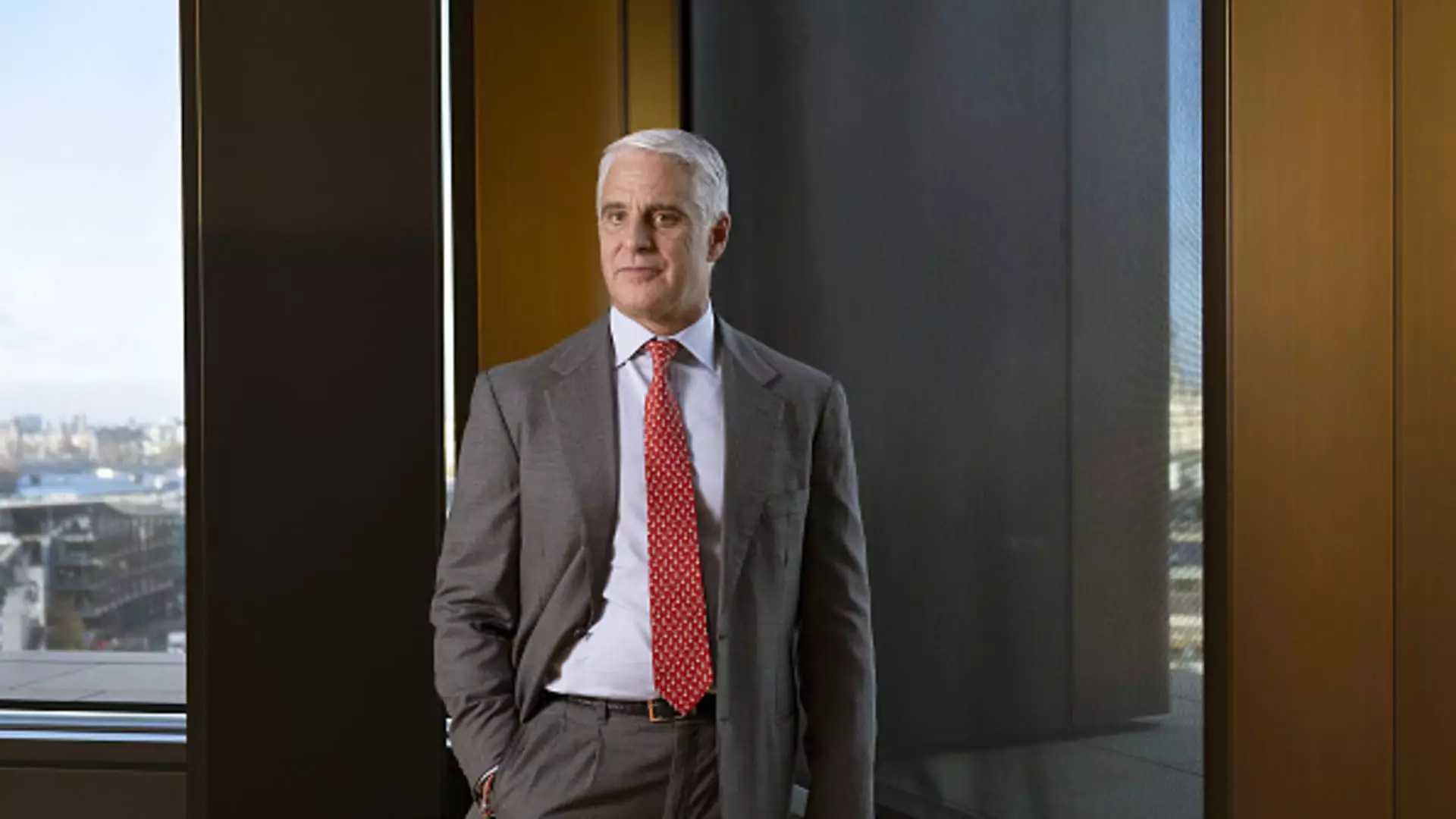The world of banking is replete with high-stakes decisions, and Andrea Orcel, CEO of UniCredit, is currently at the heart of a significant strategic juncture. His pursuit of acquisition opportunities, specifically with Banco BPM in Italy and Commerzbank in Germany, illustrates a precarious balancing act. This dual approach not only reveals his intentions to expand UniCredit’s footprint but also risks overextending the bank’s capabilities amid political and economic uncertainty within Europe.
Orcel’s recent activities echo his past experience as a key architect in the contentious takeover and subsequent breakup of ABN Amro in 2007. His attempt to build a stake in Commerzbank suggests a desire for cross-border consolidation, which is not only ambitious but also fraught with challenges. With Germany’s political landscape in turmoil and the German government’s resistance to such mergers, Orcel finds himself navigating a complex web of regulatory and financial considerations.
Turning to Banco BPM, Orcel’s efforts to acquire the Italian bank are met with substantial skepticism. The offer of 10 billion euros presented as an all-stock deal has been described by Banco BPM as delivered under “unusual terms”. This reaction indicates underlying concerns about the true valuation of the target and highlights the need for a more compelling proposal that reflects Banco BPM’s potential for growth and profitability.
Experts suggest that Orcel might still augment his offer to make it more attractive. Analysts like Johann Scholtz from Morningstar have indicated that while there is room for an increase, any rise above approximately 10% might risk diluting shareholder earnings. Thus, a careful recalibration of the bid is imperative if UniCredit hopes to successfully attract Banco BPM and strengthen its position in the Italian banking sector.
The political ramifications of this maneuvering cannot be overlooked. Italy’s Economy Minister Giancarlo Giorgetti has voiced concerns regarding UniCredit’s strategy, cautioning that engaging on multiple fronts could lead to operational risks. The Italian government’s hesitance points to deeper anxieties surrounding not just the stability of the financial sector, but also the nation’s economic sovereignty.
Such sentiments are echoed by analysts who note that Orcel may have to confront the possibility that pursuing simultaneously both Banco BPM and Commerzbank may yield more challenges than benefits. Closing one deal successfully while managing another could stretch resources and management focus thin, detracting from the larger strategic goals of improving financial resilience and market positioning.
UniCredit’s efforts come at a time when the Italian banking landscape is shifting, largely catalyzed by Banco BPM’s acquisition of a stake in Monte dei Paschi. This activity underscores a broader consolidation trend within the sector, marking a pivotal moment for M&A strategies in Italy. Analysts agree that absorbing Banco BPM could serve as a significant move for UniCredit to narrow the gap with Italy’s leading bank, Intesa Sanpaolo.
Nevertheless, Orcel’s strategy appears to signal more than just immediate acquisition goals. By pursuing Banco BPM, he positions UniCredit as a proactive player within the shifting dynamics of the Italian banking system, demonstrating a commitment to not just survival, but active participation in reshaping national financial landscapes.
In contemplating his next steps, Orcel must weigh the option of continuing UniCredit’s independent trajectory, which has so far shown robust growth, with the bank achieving a 15th consecutive quarter of positive performance. There is a compelling argument for maintaining this momentum without the burden of acquisition, particularly if the deals do not promise clear value generation for shareholders.
Ultimately, whether Orcel decides to pursue these dual paths will depend on the prioritization of shareholder interests and the feasibility of delivering tangible benefits through acquisitions. Analysts are hopeful that his past experiences will inform a disciplined approach, urging that should these acquisitions not yield adequate returns, it may be prudent for Orcel to reconsider his aggressive stance. The possibility of walking away, instead of succumbing to pressure for expansion, could be the wiser choice in an uncertain economic climate.
As the banking landscape continues to evolve, Orcel’s decision-making will undoubtedly shape the future of UniCredit, influencing not just its operational framework but also the larger trajectory of Italy’s banking sector, amidst a backdrop of political and economic change.

